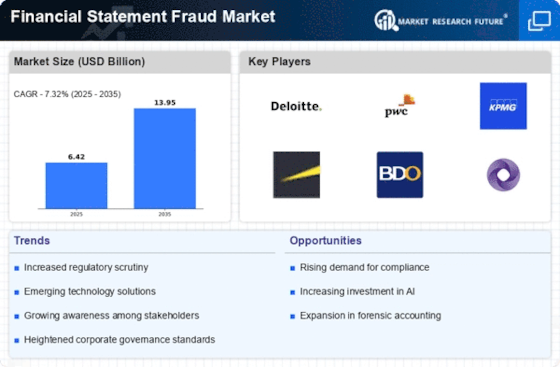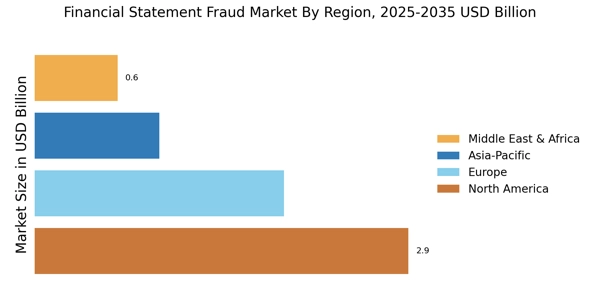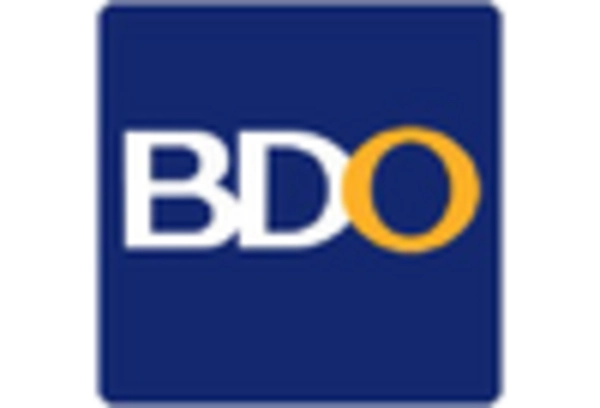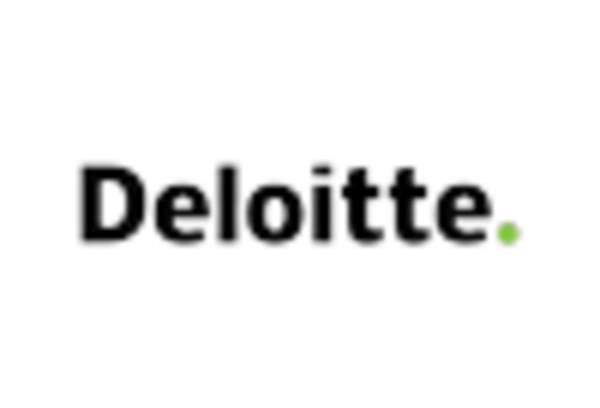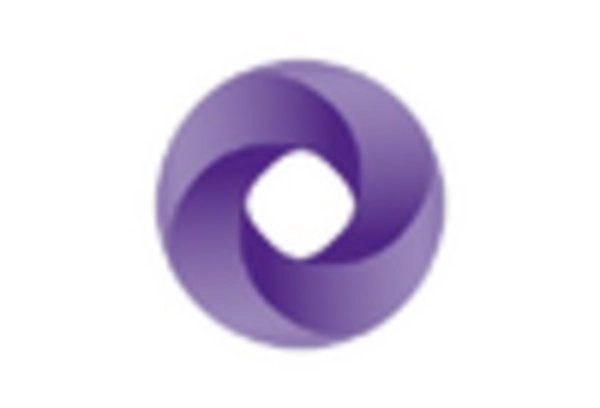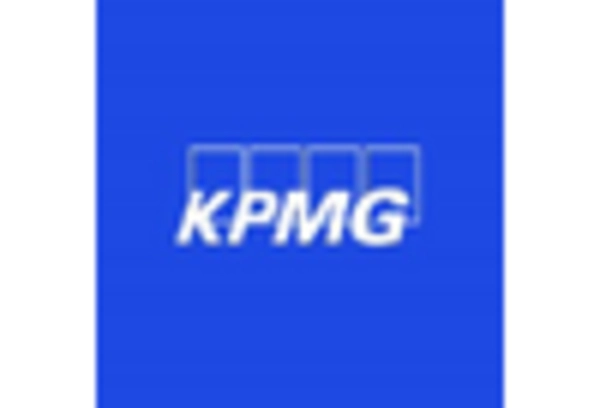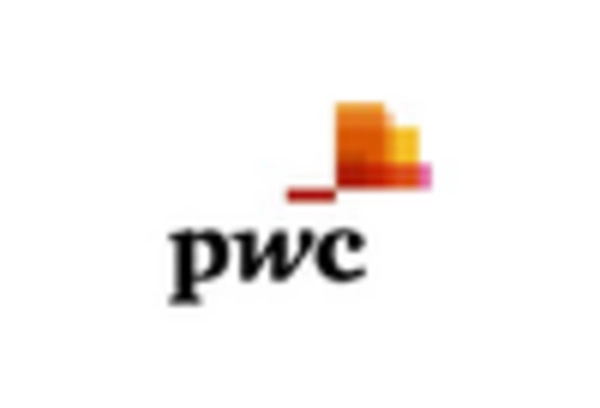Evolving Regulatory Frameworks
The evolving regulatory frameworks across various jurisdictions seem to play a crucial role in shaping the Financial Statement Fraud Market. Governments and regulatory bodies are continuously updating compliance requirements to combat financial fraud. For instance, the implementation of stricter reporting standards and penalties for non-compliance has compelled organizations to invest in robust financial controls and auditing processes. This regulatory pressure is expected to drive the market for compliance solutions, which is anticipated to reach a valuation of several billion dollars in the coming years. Consequently, the Financial Statement Fraud Market is likely to experience substantial growth as companies strive to adhere to these regulations.
Increased Corporate Accountability
The trend towards increased corporate accountability is influencing the Financial Statement Fraud Market in profound ways. Stakeholders are demanding greater transparency and ethical behavior from corporations, which has led to a reevaluation of internal controls and governance practices. Companies are now more likely to implement comprehensive compliance programs and conduct regular audits to mitigate the risk of financial statement fraud. This shift is reflected in the growing market for corporate governance solutions, which is expected to witness a significant uptick in demand. As organizations strive to uphold their reputations, the Financial Statement Fraud Market is likely to benefit from this focus on accountability.
Rising Incidence of Financial Fraud
The rising incidence of financial fraud across various sectors is a critical driver of the Financial Statement Fraud Market. Reports indicate that financial fraud cases have surged, prompting organizations to reassess their risk management strategies. This trend has led to an increased investment in fraud prevention and detection measures, as companies seek to protect their assets and maintain stakeholder trust. The financial fraud detection market is projected to grow substantially, with estimates suggesting a potential market size exceeding several billion dollars within the next few years. This alarming rise in fraud incidents underscores the urgent need for effective solutions within the Financial Statement Fraud Market.
Heightened Awareness of Financial Integrity
The increasing emphasis on financial integrity among stakeholders appears to be a driving force in the Financial Statement Fraud Market. Investors, regulators, and the public are more vigilant than ever regarding the accuracy of financial reporting. This heightened awareness has led to a surge in demand for forensic accounting services and fraud detection technologies. According to recent estimates, the market for fraud detection solutions is projected to grow at a compound annual growth rate of approximately 12% over the next five years. This trend indicates that organizations are prioritizing transparency and accountability, thereby influencing the Financial Statement Fraud Market significantly.
Technological Advancements in Fraud Detection
Technological advancements in fraud detection tools and methodologies are transforming the Financial Statement Fraud Market. Innovations such as artificial intelligence and machine learning are enabling organizations to analyze vast amounts of financial data more efficiently. These technologies can identify anomalies and potential fraud patterns that traditional methods might overlook. As a result, the demand for advanced fraud detection solutions is on the rise, with the market expected to expand significantly. Analysts project that the integration of these technologies could reduce fraud-related losses by up to 30%, thereby enhancing the overall integrity of financial reporting within the Financial Statement Fraud Market.


